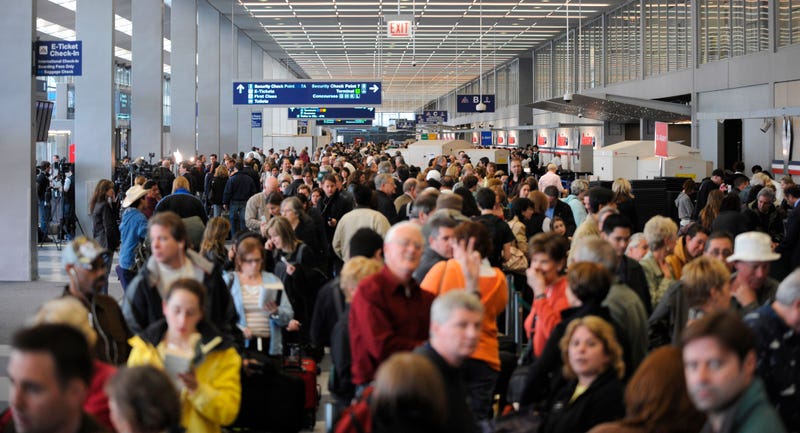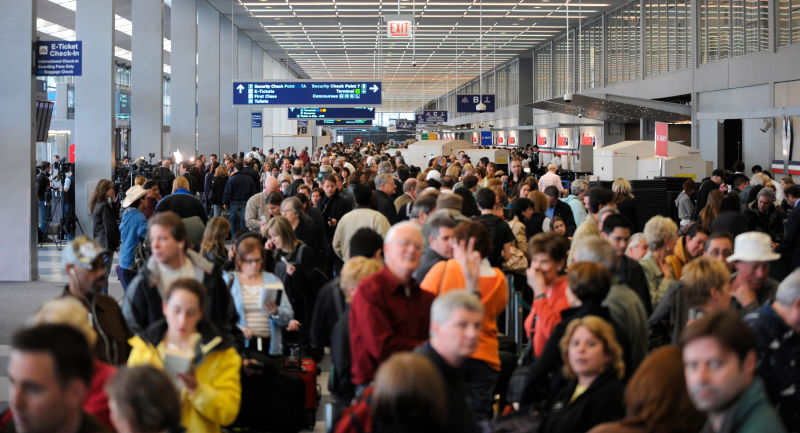
It’s no secret that airline travel is more miserable than ever, with increasing lengths of time spent on the tarmac, “family fees,” lines to pass through security growing and growing, and the increasing prospect of being manhandled by said security. If you manage to avoid any of those problems, you’re still virtually guaranteed to be packed like a sardine into a seat so tiny you’ll be lucky if you’re not making skin contact with your fellow passengers.
Congress predictably failed to address the issue in 2016. But an appeals court in Washington, D.C., ruled on Friday that the Federal Aviation Administration must reconsider its stance that the diminishing size of airline seating is not a safety issue and thus not its responsibility to regulate, adding the FAA had relied on junk science to reach its decision.
Advertisement
“This is the case of the incredible shrinking airline seat,” federal circuit court judge Patricia Millet said in her decision, according to CNN Money. “As many have no doubt noticed, aircraft seats and the spacing between them have been getting smaller and smaller, while American passengers have been growing in size.”
Flyers Rights, the plaintiffs in the case, noted airline seats had shrunk from an average width of 18.5 inches in the early 2000s to 17 inches by about 2005, while the average pitch between seats “has decreased from an average of 35 inches to 31 inches, and in some airplanes has fallen as low as 28 inches.” They also argued the smaller amount of room per passenger put those on board at risk of delayed emergency evacuations and vein clots.
Advertisement
Both factors were noted in a New York Times review of how tiny seats pose a poorly understood risk to passengers, with airlines allowed to use their own fit, healthy and trained employees for evacuation tests and the risk of vein clots confirmed by both the American College of Chest Physicians and the Centers for Disease Control.
Advertisement
Unfortunately, the ruling only requires the FAA “must come up with a better-reasoned response to the group’s safety concerns,” the Post reported, not necessarily do anything about it.
















